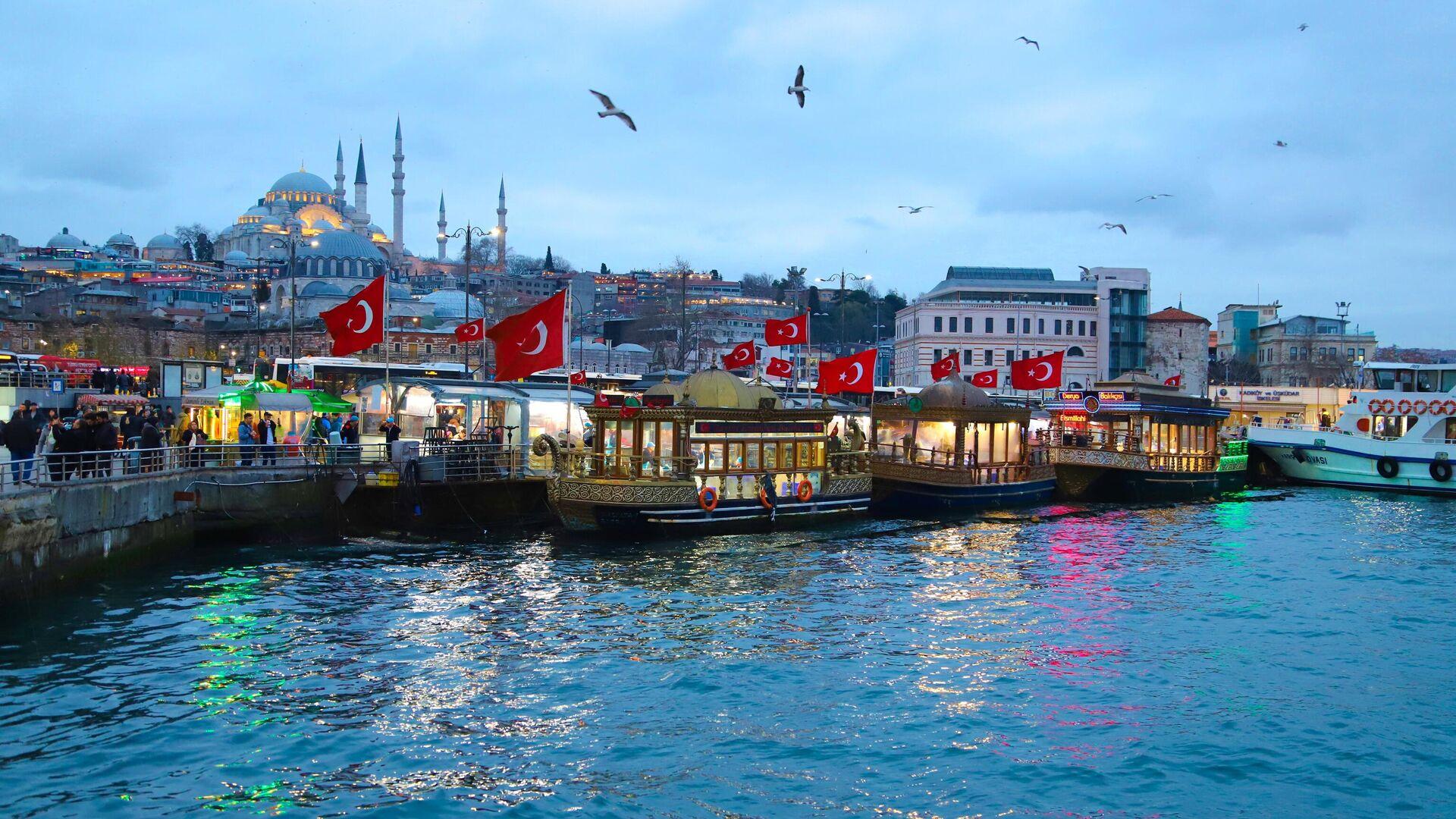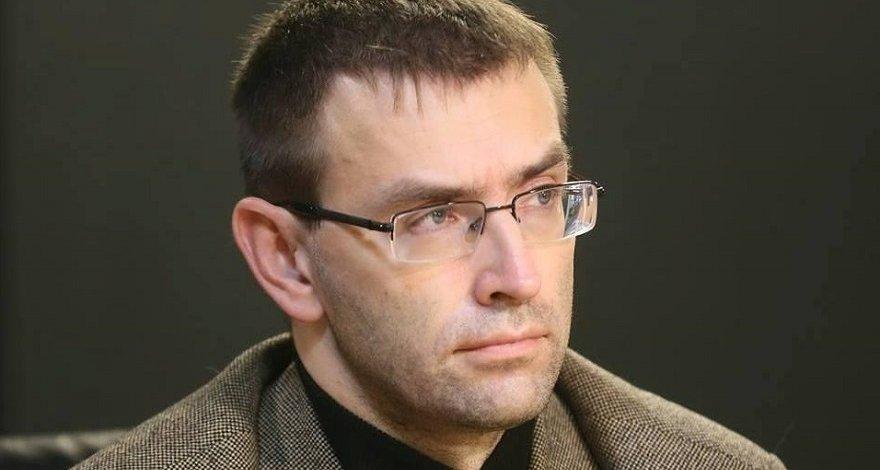Türkiye - Russia: Similar goals, different interests For upcoming Putin-Erdogan meeting
Russian and Turkish Presidents Vladimir Putin and Recep Tayyip Erdogan are going to meet in Sochi on August 5. The provisional agenda is already known - it was announced by the Russian presidential press secretary, Dmitriy Peskov, revealing that the parties will discuss military-technical cooperation, as well as a grain deal.
There is no doubt, however, that, in addition to these two areas, the leaders will discuss other pressing issues of geopolitics - the spectrum of their communication will certainly be much wider. The fact that the Turkish and Russian presidents did not limit themselves to one meeting within the framework of the recent Tehran summit and agreed to see each other again in such a short time indicates that the current agenda of the Russian-Turkish negotiations is tightly loaded and is in an active phase. Very little is known about the agreements reached in Tehran, there is practically no information about this. But judging by Erdogan's statement to the Turkish media about Putin's proposal for the production of Bayraktar unmanned aerial vehicles in Russia, it is very possible that this issue will be one of the key issues during the Sochi talks. Apparently, speaking about military-technical cooperation between Moscow and Ankara, Peskov indirectly hinted at this fact.
In general, the military-technical cooperation between Türkiye and Russia has a rich background. After all, it was in 2001, at the initiative of Türkiye, that the Black Sea Naval Cooperation Group (Blackseafor) was created from six countries in the region, among which Türkiye and the Russian Federation occupy a leading position. This event actually gave the green light to the building of military-political relations between Türkiye and Russia. Later, in 2003, within the framework of the Blackseafor project, the "Document on confidence-building and security measures in the Black Sea naval area" came into force, and in 2006, Russian-Turkish naval exercises were held for the first time. Another important nuance: of all the NATO countries, Türkiye was the first to establish military-technical cooperation with Russia. According to statistics, in the early 90s Ankara purchased weapons from Moscow for a total of about $110 million, including 110 armoured personnel carriers, military transport helicopters MI-8, Mi-17, combat vehicles and other types of weapons. In 2020, Türkiye has fully paid off the Russian Federation for the supply of S-400 air defence systems, and negotiations have been underway on the supply of the second batch of S-400 air defence systems since last year. To recall, these two countries signed a contract for the supply of four divisions of the S-400 air defence system in the amount of $ 2.5 billion in 2017, which was implemented in the summer and autumn of 2019. The contract included an option for another regimental set. In 2021, the plans to purchase the second S-400 regiment were announced, among others, by the head of the Turkish Defence Industry Department, Ismail Demir, in an interview with TRT Haber. However, to date, the second arms transaction from Russia to Türkiye has not yet been carried out. It is possible that during the meeting in Sochi, the leaders will discuss this issue in more detail.

As we can see, Türkiye is extremely principled in the issue of military supplies from Russia, acting contrary to the interests of the West, showing the whole world that its personal interests are in many ways more important than the advice from Washington and Brussels. On the other hand, contrary to the wishes of the West, Türkiye has not joined the anti-Russian sanctions, but at the same time continues to supply Ukraine with weapons of its own production, providing it with all possible financial and humanitarian assistance. Such a format of Türkiye's relations with regional partners, in particular with Russia, and with NATO allies is an indicator of Ankara's independent policy, first of all, President Erdogan, his leadership qualities, which play a primary role in international politics. By the way, in 2020, it is by no means for nothing that Russian President Vladimir Putin, during a large press conference, called Turkish President Recep Tayyip Erdogan a man "who keeps his promise" and goes to the end if he believes that it is beneficial for his country. It is well known that at that time the United States imposed sanctions on the Turkish Defence Industry Presidency and four senior officials from the leadership because of the purchase of S-400 systems from Russia. The United States had previously demanded to abandon the deal in favour of Patriot, in response to which Erdogan repeatedly stated that Ankara would not abandon Russian systems. That is, Russian-Turkish relations are being built today also due to personal contact between Putin and Erdogan, which is also an important fact.
At the same time, there are quite serious differences in relations between Türkiye and Russia, including in the Middle East. By the way, during last year's September meeting between Putin and Erdogan in Sochi, the Turkish leader noted that the settlement of the situation in the Middle East, in particular, in Syria, depends on the position of Ankara and Moscow, and hence on the mutual compromise of the parties. According to military experts, the military-political situation in Syria has remained virtually unchanged since 2020. Currently, it is known that Türkiye is planning another military operation in northern Syria. Türkiye's previous military operations were carried out in 2016-2017, 2018 and 2019. In the autumn of 2019, after the military operation "Source of Peace" against Kurdish military formations in northeastern Syria, Türkiye reached agreements with the United States and Russia on the establishment of a buffer zone controlled by Ankara. In the winter of 2019-2020, following the results of military operations between the Syrian government forces and the Turkish-backed armed opposition in the country's northwest, Presidents Putin and Erdogan concluded an agreement that established a ceasefire and reduced tensions in Idlib province. Meanwhile, Türkiye's key task in Syria is to protect its southern borders from attacks by Kurdish terrorist groups (PKK, Syrian Democratic Forces (SDF). Ankara believes that this goal can be achieved by establishing control over the northern regions of Syria - from Idlib to the Iraqi border to a depth of 30 km. At the same time, the buffer zone is provided by Türkiye for the gradual resettlement of some Syrian refugees, whose number in Türkiye is already about 4 million people. Thus, the Turkish government is trying to partially solve the problem of Syrian migrants, which will certainly add political points for Erdogan and his party on the eve of the 2023 elections.
At the same time, the Turkish president is carrying out large-scale work to improve the economic environment of the country, including purposefully establishing energy ties. In particular, the fact that Türkiye intends to extend the agreements on the purchase of natural gas with Russia, Azerbaijan and Iran was announced on the Haber Global TV channel by Turkish Energy Minister Fatih Donmez, announcing plans to extend contracts with them for a new term. It is obvious that Türkiye is consistently strengthening regional ties, among which Russia has a special place. However, close cooperation with Ankara is also an extremely important chance for Moscow, which it uses at every opportunity, especially now, against the background of its confrontation with the West over the war in Ukraine. Being isolated from the European continent, Moscow is counting on the support of regional powers, in particular Türkiye and Iran, to strengthen its positions in the South Caucasus, the Middle East, Central Asia and, of course, the entire post-Soviet space.
Commenting on Caliber.Az the upcoming Sochi meeting of Presidents Putin and Erdogan, Russian political analyst, expert of the Institute of the Middle East Sergei Balmasov described it as a bad sign, primarily for the United States.

"There is a risk that three (Iran - Türkiye - Russia) will agree against the United States in Syria. This is also a bad sign for NATO - Erdogan openly makes it clear that relations with Putin and Iran are at least as valuable for him as with the alliance. More precisely, he openly ignores calls to act together. In part, Erdogan is "looking out" for Iran and Russia so that there are no surprises on their part. Türkiye and Russia have too many mutual interests for Erdogan, who is regularly attacked in the West, to ignore Russia. The economy itself makes us close - from energy to tourism, which does not exclude rivalry in Libya, Syria and the Caucasus," Balmasov said.
In conclusion, it can be concluded that Türkiye, Russia and Iran could have agreed in Tehran to create a strong regional alliance in opposition to the West, but none of these players is ready to make serious concessions to each other to the detriment of their own interests. Time will tell what the Turkish and Russian leaders will agree on in Sochi very soon – on August 5.








